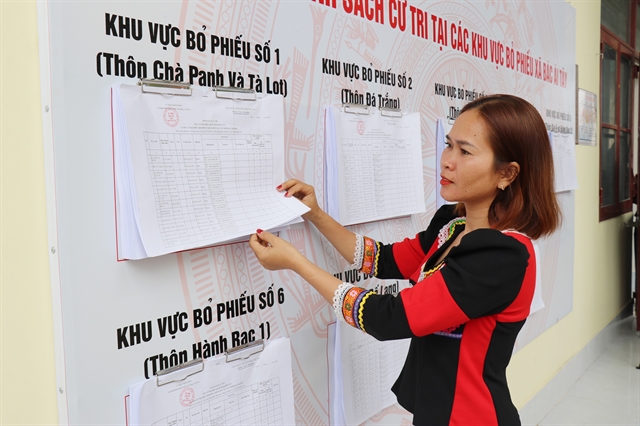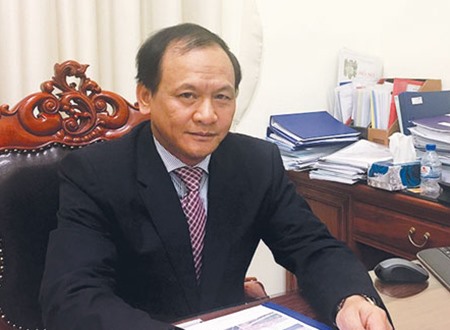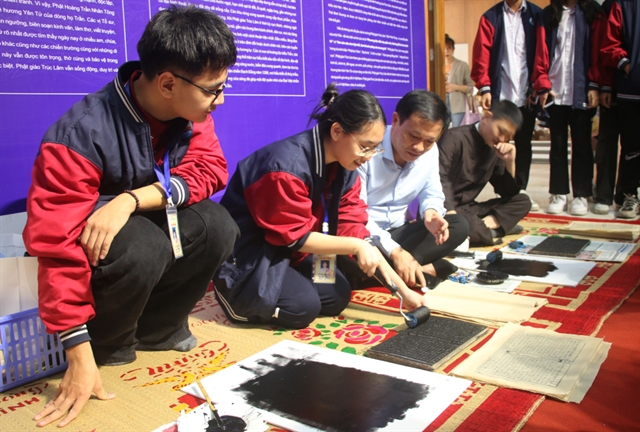 Opinion
Opinion

Deputy Minister of Transport Nguyễn Nhật speaks with the Tiền Phong (Vanguard) newspaper about measures to redress shortcomings in the management of dredging projects
 |
Deputy Minister of Transport Nguyễn Nhật speaks with the Tiền Phong (Vanguard) newspaper about measures to redress shortcomings in the management of dredging projects
Can you comment on the anonymous threats that leaders of Bắc Ninh Province received recently for proposing that a dredging project in the Cầu River be suspended because of overexploitation of sand?
High-ranking leaders of a province being threatened is an extraordinary development. The Prime Minister has asked the Ministry of Public Security and local police to investigate this. I’d rather not comment on this issue until the police complete their investigation. The ministry has asked the Inland Waterways Department to review and report on the incident.
There are suspicions that those who stand behind the project and have threatened Bắc Ninh leaders must be backed by people in higher positions benefiting from the high profits that accrue from sand exploitation. How would you respond to this?
 |
| Nguyễn Nhật |
The suspicion and inference is understandable and I’d rather not talk about it. Profits and complications in the dredging and maintenance of navigable channels associated with sand exploitation have long been recognized and the ministry has taken measures to control it.
Since 2011, there have been 66 dredging projects registered nationwide. Of these, 28 were forced to stop, the contracts of ten have expired, three did not gain local authorities’ agreement to operate, three did not complete procedures, five were suspended and 14 others are ongoing.
So far, only one project has been put into operation (legally) and two others have completed initial procedures. Thus, the number of dredging projects combined with sand exploitation is restricted.
Since 2015, the ministry has only approved one more dredging project that includes sand mining on the Đà River. However, this project has not yet begun implementation.
The ministry had halted the dredging project on the Cầu River that flows through Bắc Giang and Bắc Ninh provinces. By the end of 2015, 17 shipping companies had requested the ministry to have the river dredged. The ministry and local authorities jointly set up a survey team and agreed to continue dredging and exploiting sand.
Under the Waterways Administration’s decision, the project can only be continued with the agreement of local authorities’ agreement. Currently, the project is only being implemented in Bắc Giang Province.
Soon after reports appeared in the local media about illegal sand exploitation on the Cầu River in Bắc Ninh Province causing serious landslides, the ministry suspended three inspectors in charge of this route, saying they had failed to report the illegal sand exploitation. The ministry has said it will review the management and responsibilities of the Inland Waterways Administration.
However, it is a fact that the current waterway inspection forces are limited. The central river route is 7,100km long, but there are just two sub-divisions of inspection forces located in the north and south of the country.
Apart from the two sub-divisions, many other forces such as waterway traffic police and local traffic inspectors also join the supervision, but co-ordination among the different forces have remained loose and ineffective.
Leaders of the Inland Waterways Administration have admitted that none of dredging projects were bid for. This might raise suspicion of co-operation between project investors and authorised agencies. Can you comment on this?
The absence of bids for these projects is an imperfect element of the policy. The Ministry of Transport has stopped issuing new project licenses in order to adjust the projects’ bidding regulations.
In particular, we are amending the circular on implementation of the dredging socialization project and introducing project procurement regulations. We have completed two decrees – one on stipulating what a navigable waterway is, and another on maintaining navigable channels. There will be strict regulations on implementing private dredging projects.
Currently, a dredging project combined with sand mining is based on a survey of inland waterway navigation by the Inland Waterways Administration. When there are no bidding regulations, the investor will be allowed to conduct the survey, make technical designs and implement the dredging and mining under the supervision of the administration and local authorities.
However, because of the small amount of sand deposits in the waterway, the ministry has allowed the investor to have it after paying all taxes. I think this measure is not proper as the State does not benefit in case large quantities of sand are extracted.
Many shipping companies and port enterprises have complained that project investors only care about sand mining, not dredging mud. Is this true?
The cost of monitoring dredging projects is paid by the investors, so the effectiveness of monitoring is limited. This will not be allowed to happen any longer.
Monitoring consultants should be selected and paid by the Inland Waterways Administration, and function under its control.
In addition, other measures such as surprise inspections should be carried out to control the dredging projects. – VNS




